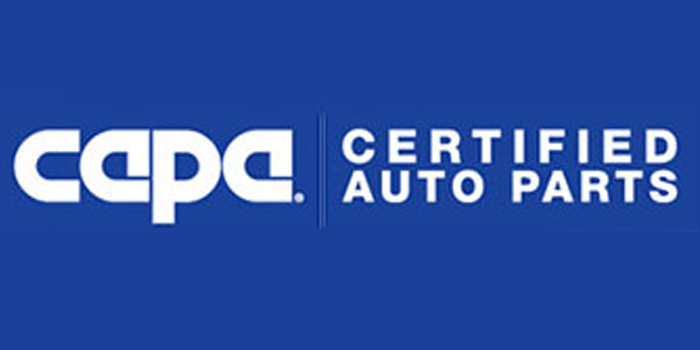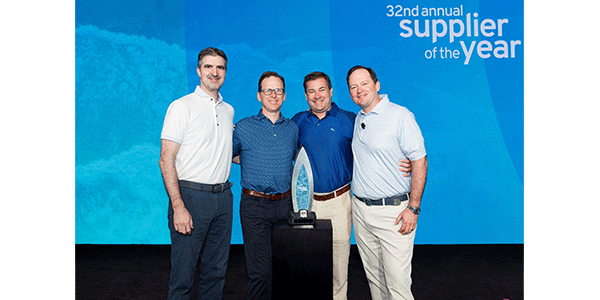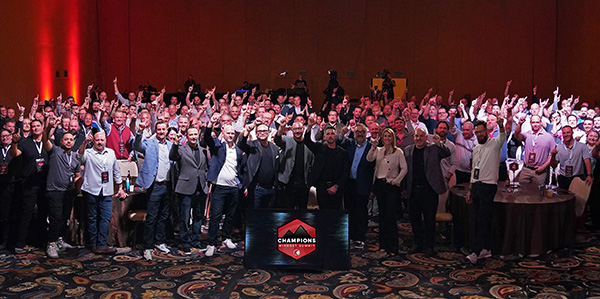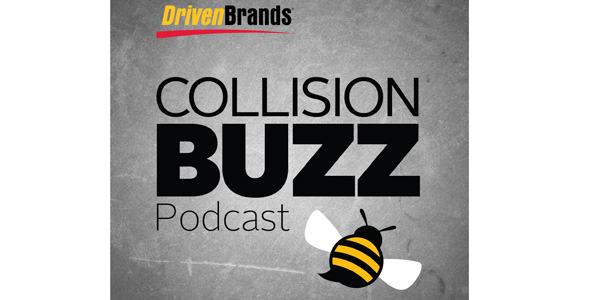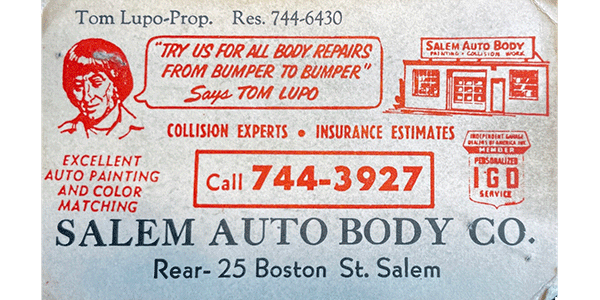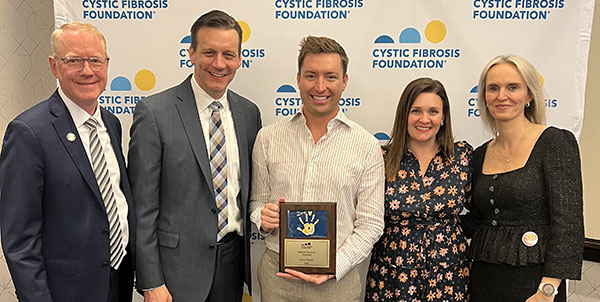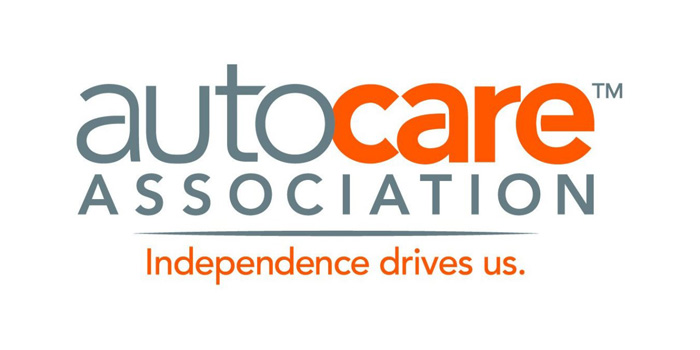California – California Senate Bill 1059, which would have made it unlawful for any insurer to require the installation of an aftermarket part for the first three years of the vehicle’s life as well as restrict the ability of insurers to replace a part with a lower priced replacement part during this same three-year period, has been defeated.
A large coalition including the California Automotive Wholesalers’ Association (CAWA), Automotive Aftermarket Industry Association (AAIA), Coalition for Automotive Repair Equality, LKQ/Keystone, California Retailers Association, AAA, the insurance industry and others worked together to lobby against S.B. 1059.
“The California State Senate clearly understands that S.B. 1059 is bad for California consumers,” said Rodney Pierini, president and CEO of CAWA. “Given the soaring costs of fuel and increasing costs of everyday goods and services, consumers deserve options from both the high costs of original equipment parts as well as increased insurance premiums. Insurers being forced to approve only one sourced, high-priced part when the same or better quality aftermarket part is available and backed by long-term or lifetime warranties is a lose-lose for consumers.”
According to CAWA, aftermarket replacement parts are in most cases manufactured by the same companies that manufacture the car company parts, and the only difference can be the box they’re marketed in and the price of the parts. CAWA also claims that aftermarket parts are identical or even more improved parts that come with long-term or lifetime warranties and cost up to 50 percent less than the identical car company part.
“Aftermarket businesses and their employees should be extremely proud of this accomplishment,” said Aaron Lowe, vice president of government affairs for AAIA. “Working together, there’s no stopping the automotive aftermarket when faced with constant ploys by the car companies and others to restrict our ability to serve our customers, offer affordable and quality automotive replacement parts and remain competitive in the marketplace.”
The Collision Repair Association of California (CRA), which backed the bill, was disappointed in its defeat but wasn’t ready to call it a total loss.
“The CRA as a whole was quite successful at the previous committee and judicial hearings,” said Lee Amaradio Jr., CRA member and owner of Faith Quality Auto Body Inc. in Murrieta, Calif. “We’ve been able to draw attention to many other issues and are gaining the recognition in Sacramento that wasn’t there in the past.”
“The insurance companies are presently leading people blindly and selling policies that are misleading,” Amaradio added. “And while I agree that there are many great aftermarket radiators and condensers out in today’s market, there are also many poor quality parts that only mimic the OEMs’ quality. We still have a warranty issue with consumers, and the federal warranty act doesn’t cover them in this situation when an aftermarket part fails and causes residual damage.
“We’ll continue to move forward and build on the positive things we’ve learned, and we’ll work as an industry to support those Senators who have supported us. I would like to thank Sen. Migden for all of her efforts to get this bill started. Once again, the lobbyists were out with a large force and were able to sway the vote in their direction by using misinformation as to what the bill contained.”
CRA lobbyist Richard Steffen added his own take on the defeat: “Our main argument was that consumers have a right to know what is and is not in their vehicle insurance policies. The leading consumer groups (Consumers Union and Consumers for Auto Reliability and Safety) in the nation supported S.B. 1059. The opposition never commented on a consumer’s right to know. Now, this opposition is public record and, in my opinion, will serve as proof that insurers are doing a disservice to their customers when they keep the use of factory or aftermarket parts a secret. Eventually, public policy will be shaped to provide consumers with more information about their policies.”
Connecticut – Connecticut Gov. M. Jodi Rell has signed a bill that will require disclosure to consumers that they have the right to choose the repair facility to complete repairs to their motor vehicles in the state. House Bill 5152 (now Public Act No. 08-146), which will go into effect January 1, 2009, will require insurance companies to include the following notice on all issued insurance cards in capital letters and boldface type: “You have the right to choose the licensed repair shop where the damage to your motor vehicle will be repaired.”
The bill also will require motor vehicle repair shops to provide notice to insurers of the need for supplemental repairs and to establish a time frame for insurers to inspect the motor vehicle prior to commencement of such supplemental repairs.
Maryland – Starting on Oct. 1, 2008, Maryland repair shops will be required to add a new consumer disclosure to invoices if customers request it.
Maryland House Bill 1057 was signed into law by the governor in May and added the new requirement to Commercial Law 14-1002.
The bill mandates that before beginning any repair work on a vehicle for which a customer is charged more than $50, an automotive repair facility shall give the customer, on the customer’s request, a written statement which contains:
• The estimated completion date.
• The estimated price for labor and parts.
• A statement that the repair facility may not be responsible for certain damages to the customer’s vehicle while on shop premises and that the customer should ask a representative of the repair facility about the extent of its responsibility, including insurance coverage.
• The estimated surcharge, if any. If the fee is disclosed to the customer before the estimate is made, the automotive repair facility may charge a reasonable fee for making the estimate.
Massachusetts – Following extensive debate, a Massachusetts legislative committee has approved legislation (House Bill 296) that will provide independent repair shops the same access to diagnostic repair information and tools that car companies make available to their franchised dealers.
The Joint Committee on Consumer Protection and Professional Licensure voted to report the landmark legislation out of committee favorably, where it will next appear before the Committee on Ways and Means.
Car manufacturers have lobbied hard against the legislation that’s co-sponsored by state Rep. Vincent A. Pedone
(D-Worcester) and state Sen. Mark C. Montigny (D-New Bedford), arguing that independent shops already have access to the information they need. When independent repair shops met with their local legislators and debunked that claim, manufacturers then suggested that the independents wanted “trade secrets” or proprietary information.
“We’ve been clear from the beginning of this process that what we want – and what consumers want – is repair and diagnostic information that many of these manufacturers are selectively withholding,” said Stan Morin, who manages a repair business and serves as the lead advocate for passage of the legislation on behalf of the Massachusetts Alliance of Automotive Service Providers (AASP). “We don’t want or need their trade secrets or any information that could even vaguely be described as proprietary. If they’re providing this repair information to dealers, then it isn’t the secret recipe for Coca-Cola and they can provide that information to us.”
Joining the Massachusetts Alliance of Automotive Service Providers (AASP) in its longstanding support of the legislation is the New England Service Station & Automotive Repair Association, Inc. (NESSARA); the Massachusetts Auto Body Association (MABA); and the Central Mass. Auto Rebuilders’ Association.
“The Massachusetts Auto Body Association fully supports House Bill 296,” said MABA President Ed Boermeester. “This legislation would ensure fair and equitable competition in the marketplace, which ultimately benefits consumers by providing greater choice at lower prices.”
“We want to make sure that our members, and the industry as a whole, retain the ability to locate the information needed to repair all vehicles,” said NESSARA Executive Director Paul F. O’Connell. “We fully support this legislation’s effort to keep the choice of where to have your vehicle repaired in the hands of the consumer.”
“It’s time to deal with this issue and bring some integrity back into the process,” said CMARA President Tom Ricci. “Saying there isn’t a problem doesn’t make the problem go away, and this issue is becoming more serious and affects local jobs and the consumer’s satisfaction.”
For more information, visit www.righttorepair.org.
Tennessee – The Tennessee House recently passed the Unfair Trade Practices and Unfair Claims Settlement Act of 2008 (Senate Bill 4208).
The law as it stands now includes unfair insurance claims practices under general laws for unfair trade practices. This new bill addresses unfair claims practices on specific terms.
Under current law, an unfair claims practice is defined as knowingly committing specified acts with such frequency as to indicate a general business practice. The law also prevents a private right of action for an unfair claims practice.
S.B. 4208 eliminates the requirement that the acts be performed “with such frequency as to indicate a general business practice.” However, this bill prohibits the insurance commissioner from levying a civil penalty or suspending or revoking a license for a violation of an unfair claims practice, unless the practice is committed knowingly or with “such frequency.” The bill also strikes out the provision regarding private rights of action.
Examples of specified acts the bill adds to the definition of unfair claims practices are:
• If the insurer requires a repair shop to be used, the insurer must adopt and implement reasonable standards to assure that the repairs are performed in a workmanlike manner.
• Refusing to pay claims without conducting a reasonable investigation.
• Failing, in the case of claims denials or offers of compromise settlement, to promptly provide a reasonable and accurate explanation of the basis for such actions.

